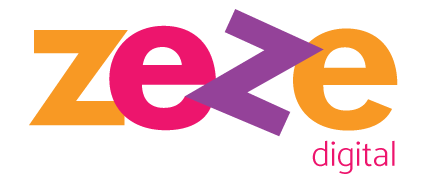In the dynamic world of marketing, where creativity meets strategy, setting clear expectations is the cornerstone of success. Marketing agencies, entrusted with the task of driving growth and achieving objectives for their clients, understand the importance of establishing transparent and realistic expectations from the outset. Let’s delve into why setting clear expectations is paramount in the realm of marketing agencies and how it contributes to building strong client relationships and delivering impactful results.
Understanding Client Goals: The first step in setting clear expectations is gaining a deep understanding of the client’s goals, objectives, and vision. Marketing agencies invest time and effort in listening to their clients, conducting thorough discovery sessions, and asking probing questions to uncover the underlying motivations driving their marketing initiatives. By aligning themselves with the client’s aspirations, agencies can tailor their strategies and tactics to deliver outcomes that truly matter.
Defining Scope of Work: Once the client’s goals are understood, it’s essential to define the scope of work clearly. This includes outlining the specific deliverables, timelines, and milestones associated with the project. Marketing agencies work collaboratively with clients to draft comprehensive project briefs or statements of work (SOW) that detail the scope, objectives, and expectations in a clear and concise manner. By establishing a roadmap upfront, both parties are on the same page regarding what needs to be accomplished and when.
Clarifying Roles and Responsibilities: In any client-agency relationship, clarity around roles and responsibilities is crucial for ensuring accountability and efficiency. Marketing agencies delineate the roles of their team members and the client’s stakeholders, clarifying who is responsible for what tasks and decisions throughout the project lifecycle. By defining these parameters upfront, agencies minimize confusion and mitigate potential conflicts down the line, enabling smoother collaboration and workflow.
Setting Realistic Timelines: Time is a precious commodity in marketing, and setting realistic timelines is essential for managing expectations and avoiding unnecessary stress. Marketing agencies work closely with clients to establish achievable deadlines for each phase of the project, taking into account factors such as resource availability, production schedules, and external dependencies. By setting realistic timelines, agencies ensure that projects stay on track and are completed within budget and schedule constraints.
Communicating Proactively: Effective communication is at the heart of setting clear expectations. Marketing agencies maintain open lines of communication with clients, providing regular updates, progress reports, and feedback throughout the project lifecycle. Whether it’s through weekly status meetings, email updates, or collaborative project management tools, agencies strive to keep clients informed and engaged every step of the way. By proactively addressing any concerns or issues that arise, agencies build trust and confidence in their ability to deliver results.
Managing Changes Effectively: Despite careful planning, changes are inevitable in the dynamic world of marketing. Whether it’s a shift in strategy, a change in direction, or unexpected market conditions, marketing agencies must be prepared to adapt and pivot as needed. However, managing changes effectively requires clear communication and a collaborative approach. Agencies work closely with clients to assess the impact of changes on timelines, budgets, and deliverables, providing alternative solutions and recommendations where necessary. By navigating changes with transparency and flexibility, agencies demonstrate their commitment to meeting client expectations and achieving success.
In conclusion, setting clear expectations is the bedrock of successful client-agency relationships in the marketing world. By understanding client goals, defining scope of work, clarifying roles and responsibilities, setting realistic timelines, communicating proactively, and managing changes effectively, marketing agencies lay the groundwork for delivering impactful results and fostering long-term partnerships built on trust and mutual respect. Ultimately, it’s the ability to align expectations, deliver on promises, and exceed client’s expectations that sets top-performing marketing agencies apart in a competitive marketplace.
